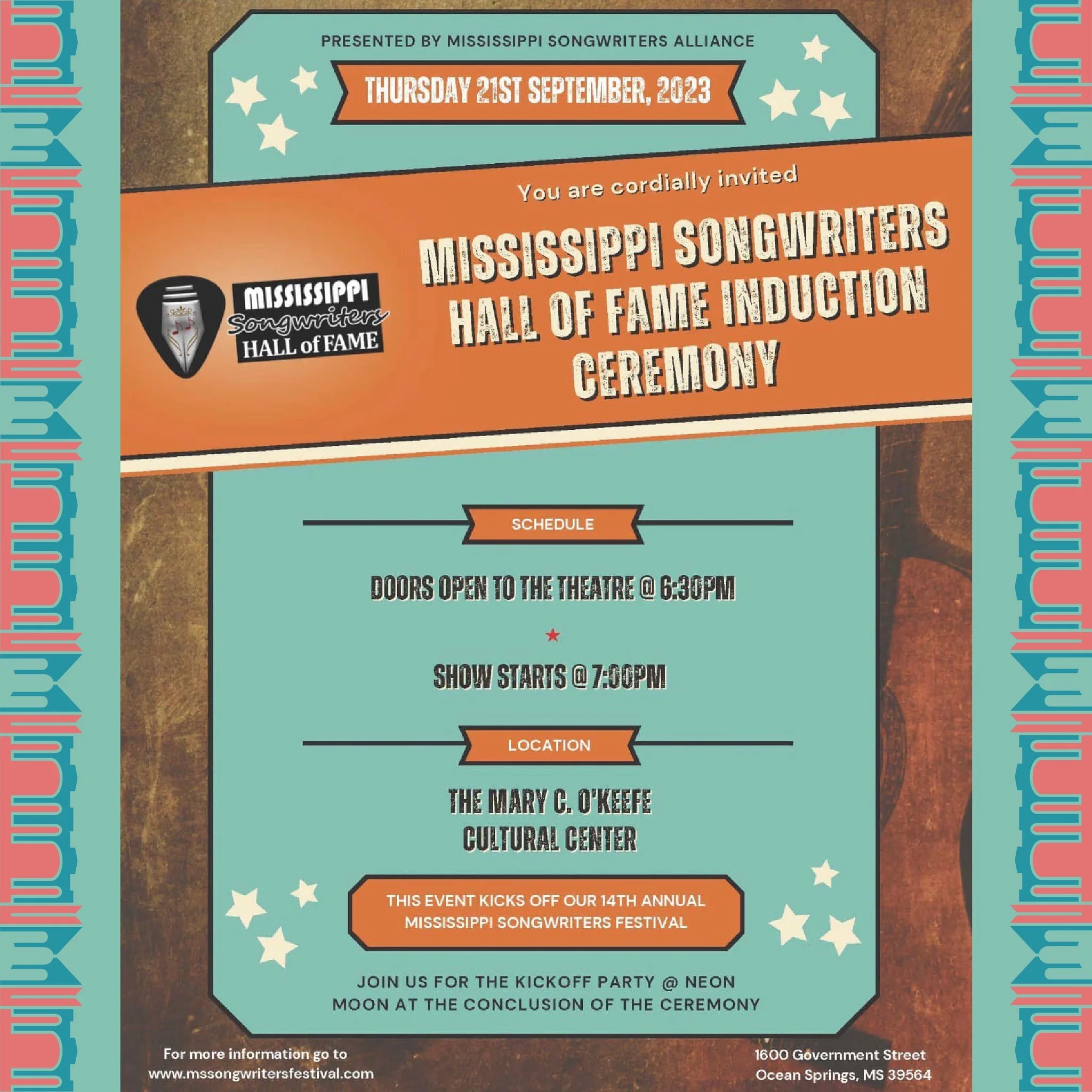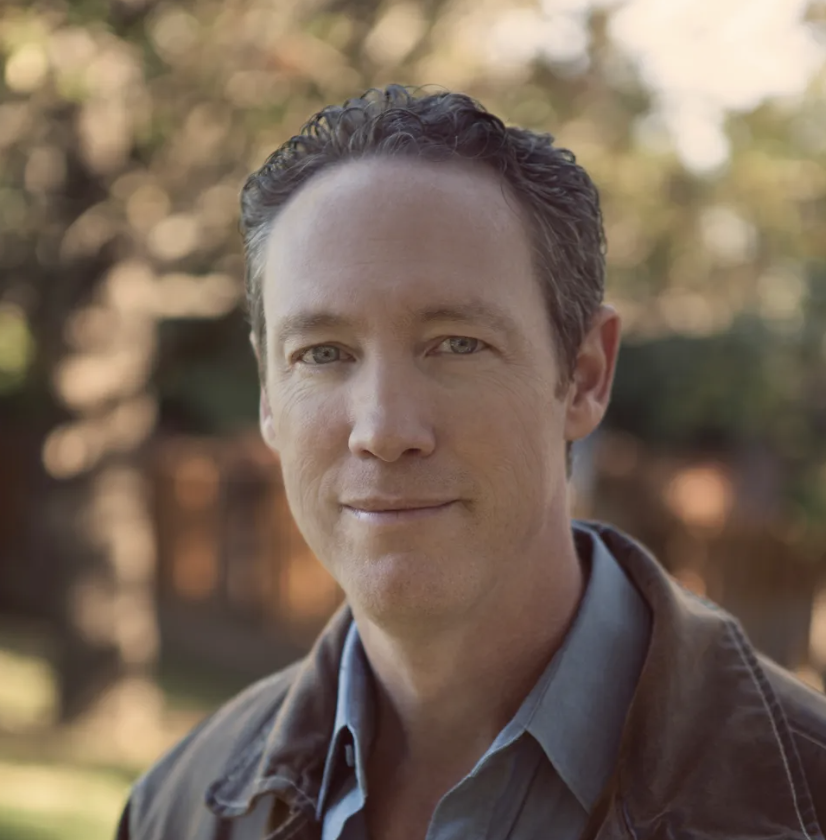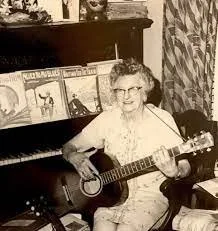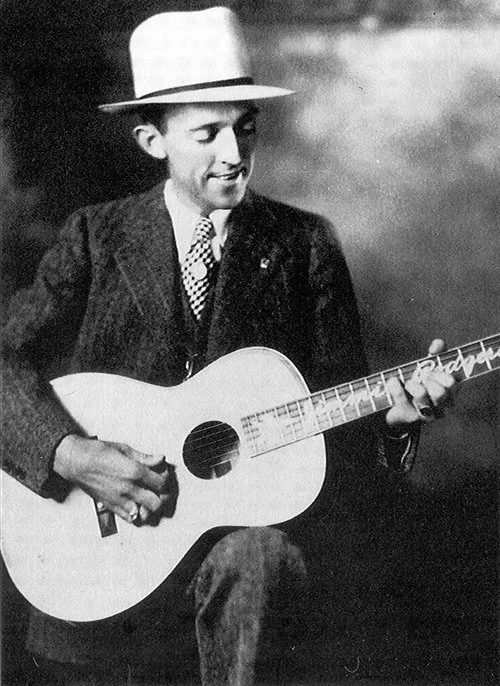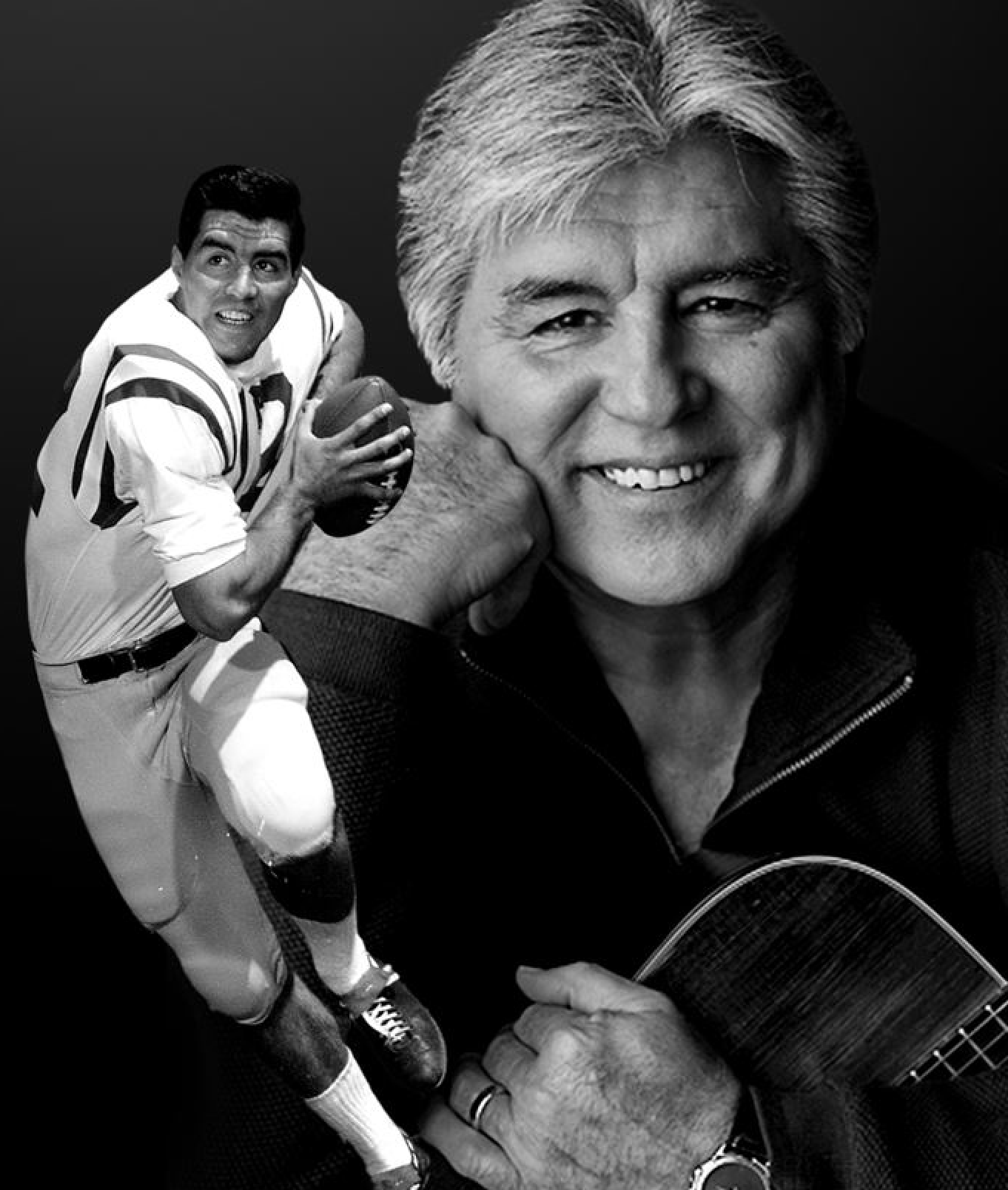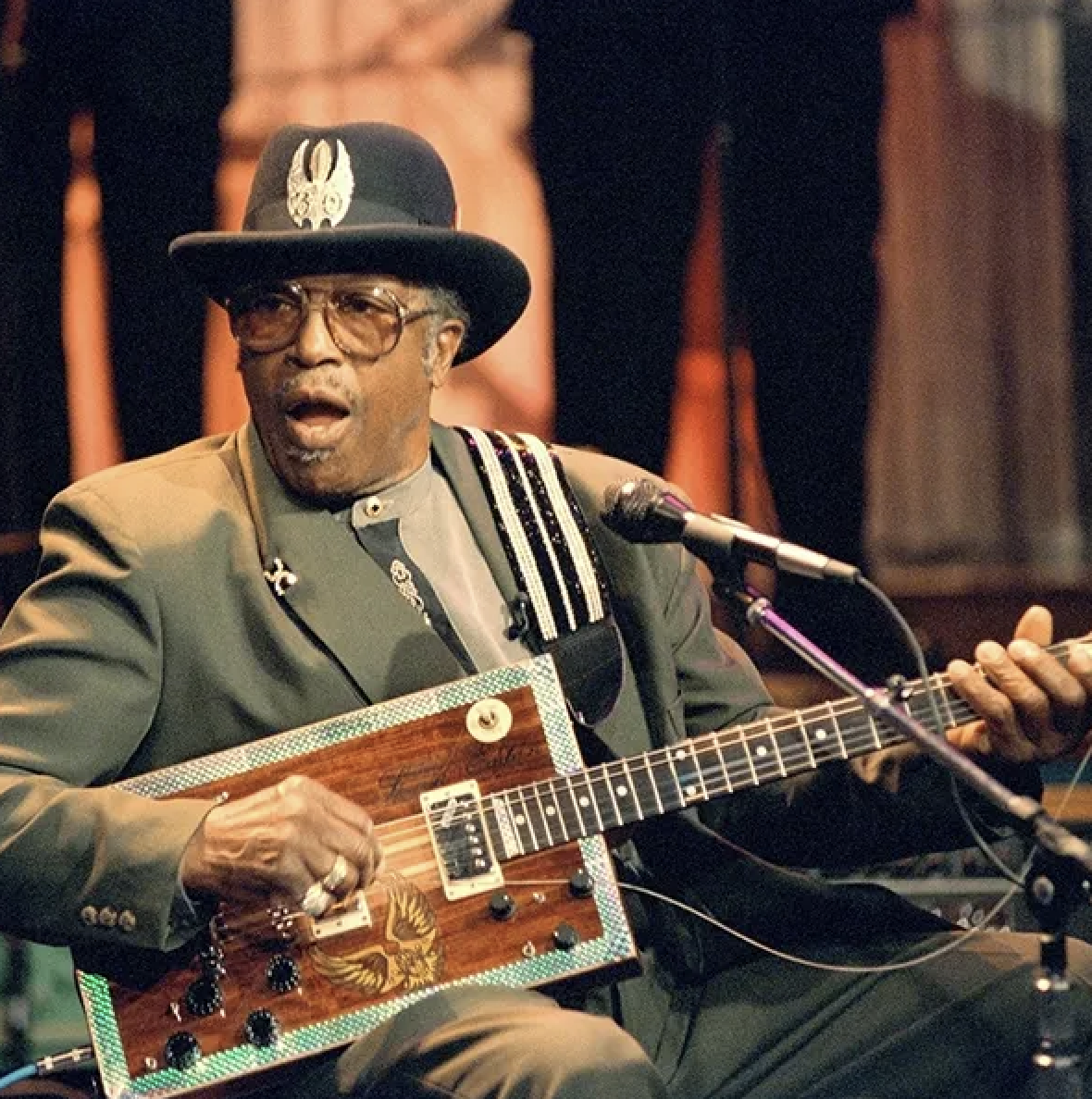2023 Mississippi Songwriters Festival Hall of Fame Inductees:
Don Poythress
Don Poythress was born in Meridian, Mississippi, but has lived and worked inNashville since 1986. He has penned songs that have been recorded by Willie Nelson, Bonnie Raitt, Sheryl Crow, Tim McGraw, Daryll Worley, Sir Cliff Richard, Brian Littrell (Backstreet Boys), Lincoln Brewster, Blake Shelton, Earl Scruggs, Kari Jobe,Philips Craig and Dean, Jake Owen, and Jason Crabb among many others.
His song “A Little More Country Than That” recorded by Easton Corbin went to#1 and was nominated for CMA and ACM song of the Year. And Kelly Pickler had a hit with “Things That Never Cross A Man’s Mind”. Other recent singles include JakeOwen’s “Tell Me” and The Henningsen’s “I Miss You”.
His Dove Award-winning Song "The Promise" as sung by The Martins, wasawarded top recorded song in the Southern Gospel Category in 2004. He also won a 2011 Dove award for Jason Crabb’s version of “Joseph” in the Inspirational Song of the Yearcategory. And his third Dove Award was for Karen Peck and New River’s “Revival” in the Southern Gospel Category.
Don is also known as a performer in his own right, appearing on such stages asthe Grand Ole Opry, The Ryman Auditorium, The Louisiana Hayride, and a regular performer at The Bluebird Café. He has taught songwriting workshops at Vanderbilt University, Belmont University, Nashville Songwriters Association International, BMI,ASCAP, The Christian Musician Summit and many other places.
His latest album with Integrity Hossanna! Music entitled “Wash Away” included guest artist Ricky Skaggs, Paul Baloche, Susan Ashton and Jared Anderson.
Don has been blessed to be the worship leader at Abundant Life Church in Mt.Juliet Tn for the last 28 years. (mssongwritersfestival.com)
Elsie McWilliams
Elsie McWilliams was the daughter of a reverend and grew up on a farm, learning music from a very early age. Elsie dabbled a bit in piano by playing in some of the ensembles her new brother-in-law, Jimmie Rodgers, got together around the area, but tended to limit her involvement because of her religious upbringing. Rodgers found a great partner in his sister-in-law for such song maneuvering because her tastes were eclectic and musical interests and capabilities broad. Ms. McWilliams’ works have been sung by the likes of Doc Watson, the Carter Family, the Blasters, Lefty Frizzell, Merle Haggard, and Bob Wills, to name a few. (Allmusic.com)
Jimmie Rodgers
Jimmie Rodgers, known professionally as the “Singing Brakeman” and “America’s Blue Yodeler,” was in the first class of inductees honored by the Country Music Hall of Fame and is widely known as “The Father of Country Music.” From many diverse elements—the traditional folk music of his southern upbringing, early jazz, stage-show yodeling, the work chants of Black railroad section crews and, most importantly, African American blues—he forged a lasting musical style that made him immensely popular during his own lifetime and a major influence on generations of country artists to come. Gene Autry, Johnny Cash, Lefty Frizzell, Merle Haggard, Bill Monroe, Dolly Parton, Hank Snow, Ernest Tubb, and Tanya Tucker are only some of the dozens of stars who have acknowledged Rodgers’s impact on their music.(countrymusichalloffame.org)
Jim Weatherly
Weatherly was born in Pontotoc, Miss. He started writing songs at age 13, inspired by the music of Elvis Presley and rockabilly. In college he was in a band called Jimmy Weatherly and the Vegas. He fronted another band, The Gordian Knot, that recorded for Verve Records in 1968, with Weatherly as lead vocalist and guitarist.
The former Ole Miss Quarterback’s music spanned genres, from country to pop to R&B. Among the hundreds of artists who recorded Weatherly's songs are Glen Campbell, Ray Price, Charley Pride, Dean Martin, Johnny Mathis and Indigo Girls. In an interview with the Nashville Songwriters Hall of Fame, to which he was inducted in 2006, he talked about the importance of writing songs that are "honest and true," and not forcing it. (NPR.org)
Bo Diddley
“The Man that created a Genre, with the music that inspired generations”
Bo Diddley “The Originator” (December 30, 1928 - June 2, 2008), born Ellas Otha Bates, was an original and influential American rock & roll singer, guitarist and songwriter. He was known as "The Originator" because of the key role in the transition from blues music to rock & roll, influencing a host of legendary acts including Buddy Holly, Jimi Hendrix, Eric Clapton and The Rolling Stones to name a few. He introduced more insistent, driving rhythms and hard-edged guitar sound on a wide-ranging catalog of songs. Diddley was inducted into the Rock and Roll Hall of Fame and received Lifetime Achievement Awards from the Rhythm and Blues Foundation and a Grammy Award from the National Academy of Recording Arts and Sciences. He was also an influential guitar player who invented many special effects and other innovations in tone and attack. Diddley's trademark instrument was the rectangular-bodied Gretsch guitar, nicknamed "The Twang Machine," a guitar that he developed himself around 1958 and wielded in thousands of concerts over the years. He later had other similar-shaped guitars custom-made for him by other manufacturers. He also played the violin, which is featured on his mournful instrumental "The Clock Strikes Twelve," a 12-bar blues. Diddley started playing the guitar after hearing bluesman John Lee Hooker in Chicago. In 1951, he landed a regular spot at the 708 Club on Chicago's South Side, with a repertoire influenced by John Lee Hooker, Muddy Waters, and band leader Louis Jordan. In late 1954, he teamed up with harmonica player Billy Boy Arnold, drummer Clifton James, and bass player Roosevelt Jackson to record demos of “I'm A Man" and "Bo Diddley" with a backing ensemble comprised by Otis Spann (piano), Lester Davenport (harmonica), Frank Kirkland (drums), and Jerome Green (maracas). They then re-recorded the songs at Chess Studios. The record was released in March of 1955, the a-side, "Bo Diddley," becoming an R&B number-one hit. Following the hit, The Ed Sullivan Show booked Diddley to play live. Sullivan asked him to sing Tennessee Ernie Ford’s country smash “Sixteen Tons”; instead, the young star unleashed the guitar maelstrom that introduced him to the world, and whose title bore his name: “Bo Diddley.” He invented his name, his guitar & a beat that changed music forever. - Rolling Stone Throughout the 1950s and 1960, Diddley became a musical force with albums like Bo Diddley Is a Gunslinger and Have Guitar, Will Travel. Bo Diddley is best known for the "Bo Diddley beat," a driving, rumba-like beat. Although the beat conjures feelings of Africa and the Caribbean, Diddley reportedly invented it while trying to play Gene Autry's "(I've Got Spurs That) Jingle, Jangle, Jingle." The Bo Diddley beat was used by many other artists in the 1950s and 1960s, notably Buddy Holly ("Not Fade Away"); Johnny Otis ("Willie and the Hand Jive"); Elvis Presley ("His Latest Flame"); Wayne Fontana & The Mindbenders ("The Game of Love"); Jefferson Airplane ("She Has Funny Cars"); George Michael ("Faith"); and others. The early The Rolling Stones sound featured several uses of the Bo-Diddley beat on songs such as "Not Fade Away" and "I Need You Baby (Mona)." Buddy Holly's own cover version of "Bo Diddley" provided him with a top-ten posthumous hit in the UK in 1963. Diddley had several additional hits through the late 1950s and the 1960s, including "Pretty Thing" (1956), "Say Man" (1959), and "You Can't Judge a Book By the Cover" (1962). He released a string of albums whose titles—including Bo Diddley Is a Gunslinger and Have Guitar, Will Travel—that bolstered his self-invented legend. Between 1958 and 1963, Checker Records released 11 full-length albums by Bo Diddley. Diddley was a breakthrough crossover artist with white audiences, appearing on the Alan Freed concerts and popular television shows. However, he rarely tailored his compositions or performances to teenage concerns. His live shows—unlike those of Chuck Berry, for example—were oriented toward adult black night clubs until his later career of playing oldies shows. He was inducted into the Rock and Roll Hall of Fame in 1987. In his later years, Diddley continued to perform, conducting a world tour in 2005 to celebrate 50 years in music. In 2005, Bo Diddley celebrated his fiftieth anniversary in music with successful tours of Australia and Europe, and with coast-to-coast shows across North America. He performed his song "Bo Diddley" with Eric Clapton and Robbie Robertson at the Rock and Roll Hall of Fame's twentieth annual induction ceremony and in the UK, Uncut magazine included his 1958 debut album "Bo Diddley" in its listing of the "100 Music, Movie & TV Moments That Have Changed The World.” (bodiddley.com)

